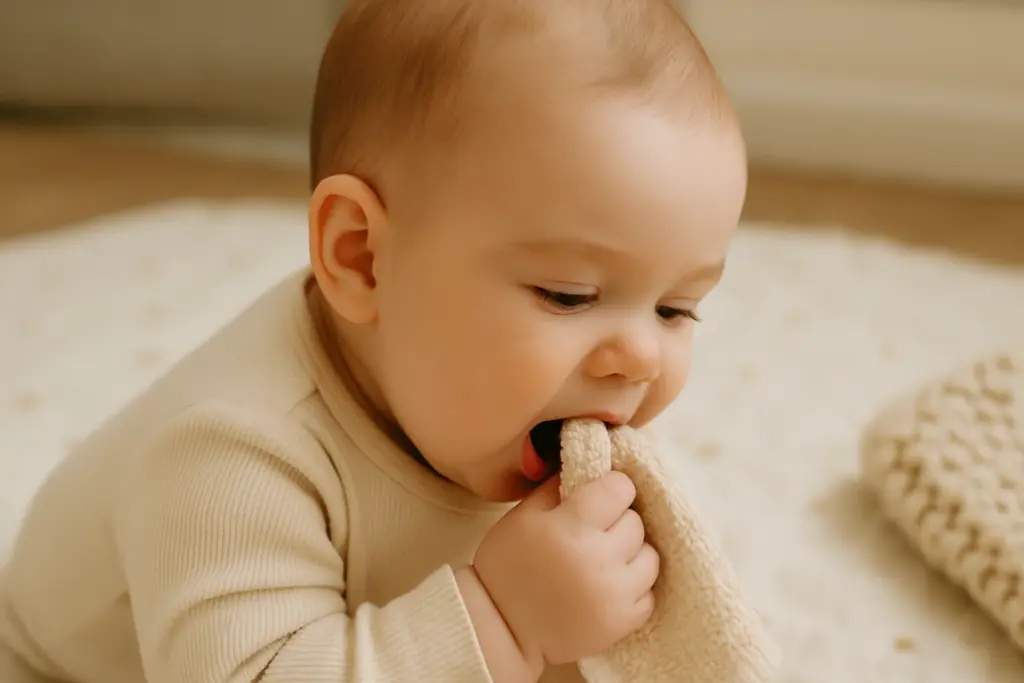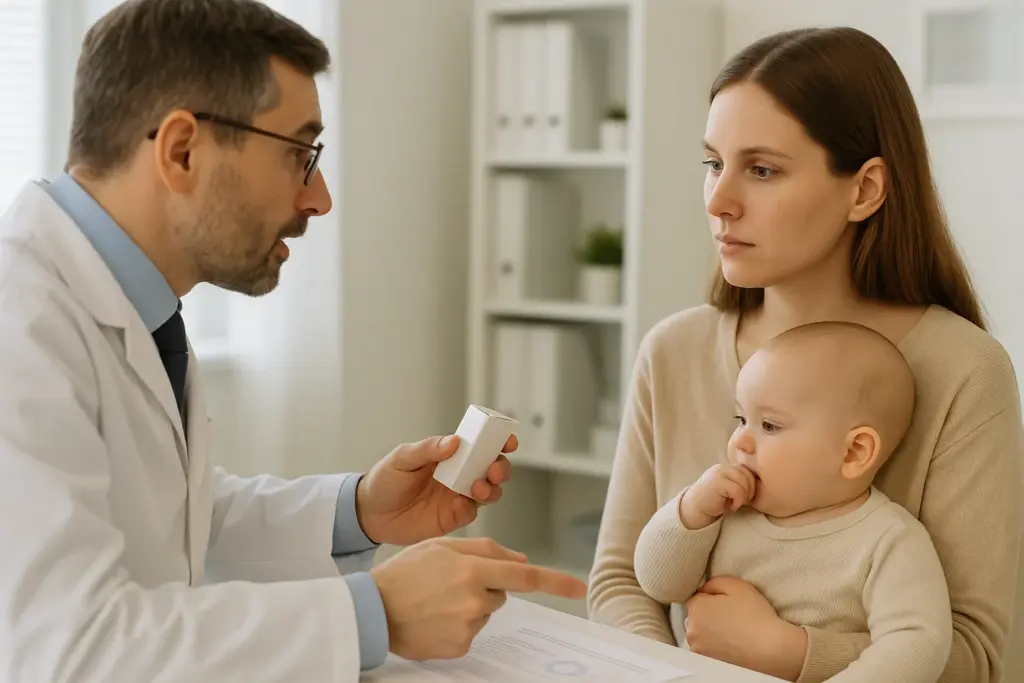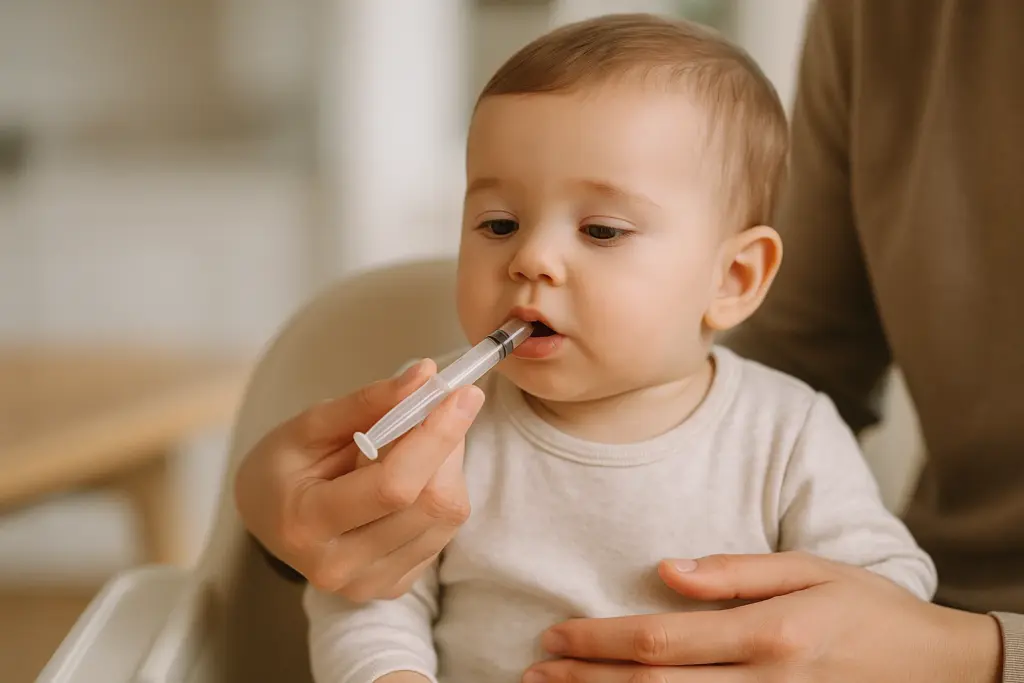👶🏻 Top Baby Medications for Tooth Pain!
Teething is a milestone that will always be remembered by parents. It is the very beginning, with the arrival of the first incisors of the tooth, that children often start showing irritation, anger, and lack of sleep. For adults, it is a very error-prone point to distinguish real issues from ordinary phenomena.
Thus, we offer the most comprehensive baby tooth pain relief guide. We will keep you informed of all OTC products and the most natural treatments. We suggest you find a nice place to read (maybe even grab a teething ring), as we march through the content.
How to Identify Tooth Pain in Babies

Each baby is unique but in general telling signs exist of little ones who are being bothered by erupting teeth. Teething is characterized by a period when children get their teeth within months of birth, mostly from 4 to 7, but it may occur even earlier.
Here’s a list of likely symptoms:
- Constantly putting toys, fingers, pacifiers, and other small items into the mouth
- Wetness everywhere and on everything (how fast they can do that)
- Swelling, redness, and intender (sometimes, you can see the tooth from outside)
- Occasional or an outburst of crying mostly at night
- Wiping the ears or the cheeks with hands
- Getting to possibly a little high in the temperature (but not feverish)
Babies sometimes hardly feel the teething process, whereas others are completely overwhelmed with complaining. However, you must be able to identify the time when it is just discomfort and when it can even be categorized as an emergency.
When Is Medication Necessary for Teething Discomfort?
If your baby is just moderately fussy, you probably don’t need to grab the medicine box. But if your baby is:
- Crying very hard for hours
- Turning down meals and sleep
- Starting to pull at his ears or screaming during feeding
- Experiencing real discomfort (e.g., by arching their back or waking up several times during the night)
… then it might be the right time to think about using pain relief.
Do not forget that you should ask your pediatrician first before you give any kind of medication, especially if your baby is under 6 months. They will tell you what is safe, the right dosage, and how often to do it.
What Kind of Over-the-Counter Baby Pain Relievers Are Safe?

Don’t just get any over-the-counter medication for babies. The drugs can be categorized as set of meds that are useful.
1. Baby Acetaminophen (Paracetamol)
This medicine is safe for babies after 2 months with the permission of the doctor. The drug has a pain-reducing effect and can also reduce a slight fever.
2. Baby Ibuprofen
A child can be given more than 6 months of age. It is a drug that reduces swelling and pain caused by inflamed gums. It also works longer than paracetamol.
3. Baby Mouth Gels
It’s a question of whether the mouth gels work or don’t. Some of them like benzocaine, which is the most common active ingredient in oral gels and is not recommended for babies younger than 2 years because it might cause a rare but severe condition called methemoglobinemia. See to it that the product you choose is made for the examiner and always read the label first.
4. Teething Drops
Although many teething drops claim to be natural and are thus harmless, one should be careful and should not trust all of them to work; hence, always ask your pediatrician before using such products.
Important:
Don’t give an aspirin to a baby at any cost. Also, you should avoid using strong gels or tablets which are made for adults. Babies’ bodies are completely different from ours, and they process meds in a totally different way.
Natural vs. Medicinal Teething Remedies

Some parents may choose not to use drugs as the primary health care. Thankfully, there are some readily available, simple baby safe remedies that actually do the trick, and they are without a doubt.
Natural Teething Relief Ideas:
- Cold Teething Rings: Keep them in the refrigerator but away from the freezer and allow the infant to chew. The cold gives a numbing effect.
- Clean Frozen Washcloth: Soak and put a baby washcloth in the freezer, then let the baby munch on it. This kind of food, which is textured and cold, is the magic solution.
- Silicone Teethers: Quite gentle, stretchy, and convenient. Some of them are even with the bumps for gum-relieving massaging.
- Teething Biscuits (for older babies): Teething biscuits are the best friends of babies who have started eating solids; however, be watchful all the time.
Of course, natural teething remedies are very soft and you shouldn’t be surprised if they don’t work for every child effectively – especially when the teething pain is very acute. In this scenario, you might probably want to consider two different treatments, running in parallel (of course, with the permission of your pediatrician).
When to See a Pediatric Dentist for Tooth Pain
In most cases, teething does not require the child to be taken to a dentist, but when a child has some tooth trouble, the pain may not necessarily be that of a growing tooth coming through the gum. This is when a doubt arises about when to book that appointment:
- A clear visage of more swollen areas or any puss formation near gums
- Temperature exceeding 38°C (100.4°F)
- Bleeding gums (not just a little bit of soreness)
- Even after administration of medicine, the baby still feels pain
- Baby’s first tooth doesn’t show up until 18 months
If you don’t have a visit to a pediatric dentist on your child’s to-do list, better add one by the baby’s very first birthday. The dentist monitors the baby’s teeth during teething, and in the process, any early decay signs that are present can be fished out.
When in Istanbul, Lema Dental Clinic offers high-standard pediatric dental care which provides a clean, comfortable, and family-oriented atmosphere. The clinic not only covers the child’s first teeth but can also perform a full examination of their little one’s smile.
FAQ: Top Baby Medications for Tooth Pain
Infant paracetamol is often considered the safest first choice, especially for babies under 6 months (with a doctor’s approval). For babies over 6 months, ibuprofen can be more effective for inflammation.
Not all of them. Some gels contain ingredients like benzocaine, which are not safe for young babies. Always check with your pediatrician before using any gel.
Yes, but only after checking the right dose with your pediatrician. Never mix both medications unless told to do so.
Chilled teething rings, frozen washcloths, silicone teethers, and lots of cuddles! These non-medicinal options are great for mild teething symptoms.
If your baby has ongoing pain, swelling, or bleeding—or hasn’t had a dental checkup by age one—it’s time to see a pediatric dentist.




